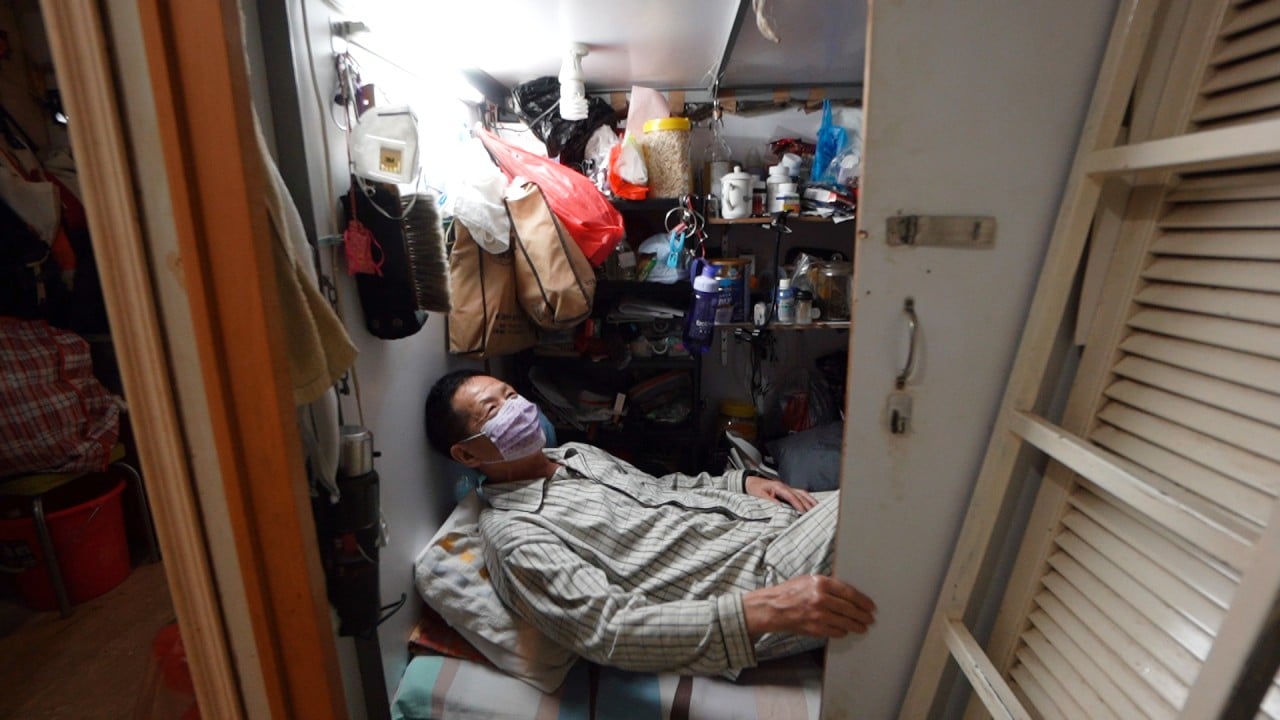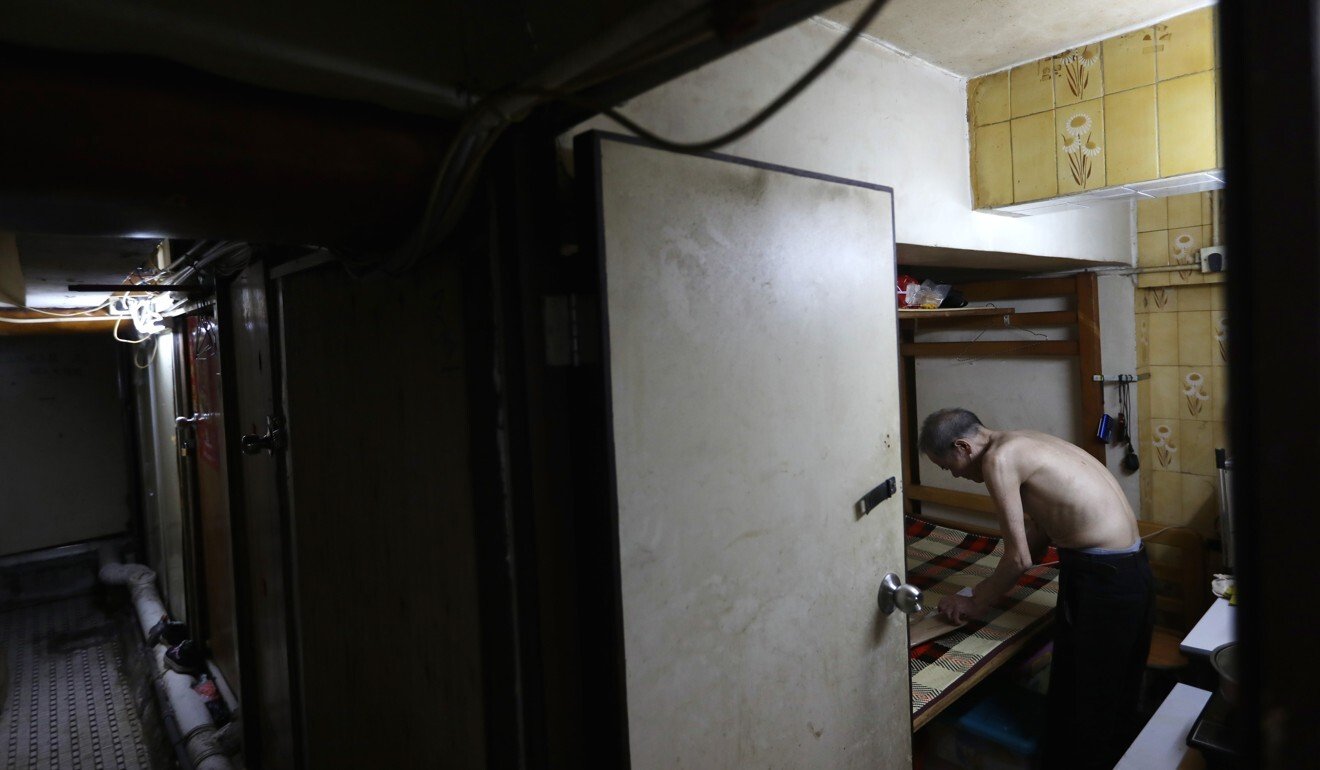
Explainer | What landlords and tenants have to look out for under Hong Kong’s new rent-control law for subdivided flats
- Landlords will face more stringent controls and cannot raise rent prices during the tenancy agreement or overcharge tenants
- Bill will not apply to sites with issues such as illegal structures and unauthorised works
A bill to regulate rent at about 110,000 subdivided flats in Hong Kong, home to some of the city’s poorest residents, will be presented to the legislature next week and is expected to take effect as early as the end of the year.
The Landlord and Tenant (Consolidation) (Amendment) Bill 2021 is a government measure designed to tackle the problem of unaffordable housing that has long plagued the city. A severe shortage of public housing has meant that tens of thousands of low-income families have no choice but to live in shoebox dwellings in rundown buildings.
Hong Kong landlords face HK$10,000 fines under new rent-control law
They are often overcharged by landlords and can be evicted easily when the market level of rent goes up and they cannot afford the increase.
Here is a look at the gist of the bill.
1. What types of housing are covered by the bill?
The bill covers subdivided flats, defined as premises that form part of a unit of a building. The definition extends not only to domestic and composite buildings, but also industrial and commercial blocks that are considered illegal as residential areas.
It will not cover sites involving issues such as illegal structures or unauthorised building works.
While officials say tenancy control should be applicable to as many subdivided flats as possible, they have clarified that the bill is not meant to legalise the residential use of industrial or commercial blocks.
2. What rules will landlords and tenants have to follow?
Landlords will be subject to more control. First, a landlord renting out a subdivided home must enter into a written standard tenancy agreement with the tenant for a fixed term of two years, at a rent level to be negotiated among themselves.
During the period, the landlord cannot raise rent prices, but can choose to lower them of his own accord or through the tenant’s request.

04:29
Hong Kong cage home resident finds space too small for self-quarantine amid coronavirus outbreak
The landlord cannot make the tenant pay anything other than rent, deposits, reimbursement of utility charges or damages.
If there are no separate electricity or water meters installed, the landlord must provide the tenant with a copy of the utility bill and a breakdown of payments shared with other tenants in the same unit. The same applies to charges for gas and communication services.
Tenants have the right to terminate the lease 12 months into the term by giving the landlord one month’s notice.
But if they use the premises illegally, cause unnecessary annoyance, make alterations without prior consent, or sublet their units without permission, the landlord may enforce a right of re-entry or forfeit the tenancy.
The landlord must submit information about the regulated tenancy to the Rating and Valuation Department within 60 days after the term commences. Failure to do so is an offence.

3. What are the offences and penalties involved for breaking the policy?
Under the bill, three types of offences will be penalised.
A landlord who makes a tenant pay for fees beyond rent, deposits, utilities or damages is liable to a maximum of HK$10,000 fine at the first offence. Fines will be increased to HK$25,000 for subsequent offences.
The landlord is also liable for similar fines if he charges tenants for utilities that are more than their shared amount.
Hong Kong property market to remain resilient even in the midst of exodus
If the landlord refuses to submit a notice of tenancy to the Rating and Valuation Department within 60 days after the term of the tenancy commences, he is liable to a HK$10,000 fine and will continue to be fined HK$200 a day until the notice is submitted.
4. What happens on expiry of the two-year lease?
The landlord must offer a second lease term before the first one expires. The tenant will have the right to renew the tenancy once, enjoying a total of four years of security of tenure.
The terms and conditions of the second term are to be the same, except that the rent can be adjusted under a new mechanism.
Rising rents, high moving costs hurt families in Hong Kong’s subdivided flats
The government will adopt the RVD’s rental index for all classes of private residential properties to regulate how much landlords can raise the rent. The rate of increase should not be more than the percentage change of the index, or 15 per cent, whichever is lower.
5. Are there concerns over private property rights?
Some property owners have complained the bill will infringe on their property rights and impose too many restrictions on renting out to tenants.
William Leung Wing-cheung, chairman of a task force that made recommendations to the government in drafting the bill, said earlier that the policy must steer clear of any “disproportionate” infringements on property rights, while avoiding worsening the housing shortage for the city’s poorest residents. That explains why the bill does not set a maximum rent.
Additional reporting by Joyce Ng

